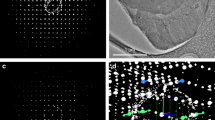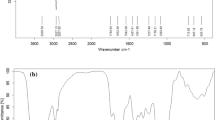Abstract
WITH reference to the above letter, we should like to point out that we showed in a recent paper on phytic acid and the rickets-producing action of cereals1, that the greater part of the calcium in a hydrochloric acid extract of oatmeal is, in fact, precipitated as phytate on bringing the solution to the neutral point, even though the total amount of calcium present is much less than equivalent to the phytic acid in the solution. Possibly the magnesium which is also present in the extract assists in the precipitation of calcium by forming an insoluble magnesium-calcium phytate instead of a soluble sodium-calcium double salt2 which may be formed under the conditions described by Yang. Unfortunately, he does not state the hydrogen ion concentration under which his observations were made.
This is a preview of subscription content, access via your institution
Access options
Subscribe to this journal
Receive 51 print issues and online access
$199.00 per year
only $3.90 per issue
Buy this article
- Purchase on Springer Link
- Instant access to full article PDF
Prices may be subject to local taxes which are calculated during checkout
Similar content being viewed by others
References
Harrison, D. C., and Mellanby, E., Biochem. J., 33, 1660 (1939).
Posternak, S., Helv. chim. Acta, 4, 150 (1921).
Author information
Authors and Affiliations
Rights and permissions
About this article
Cite this article
HARRISON, D., MELLANBY, E. Ionization of Calcium Phytate. Nature 145, 745–746 (1940). https://doi.org/10.1038/145745b0
Issue Date:
DOI: https://doi.org/10.1038/145745b0
Comments
By submitting a comment you agree to abide by our Terms and Community Guidelines. If you find something abusive or that does not comply with our terms or guidelines please flag it as inappropriate.



